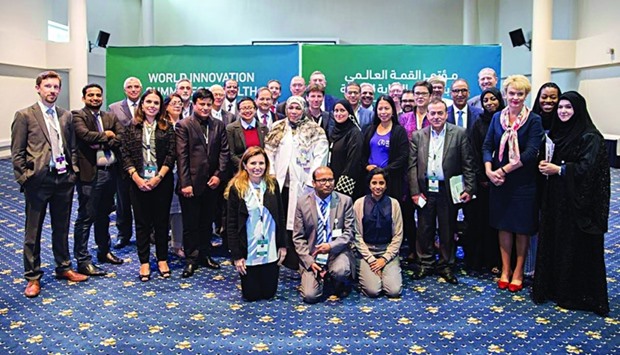The need for greater awareness of dementia, a brain condition that causes problems with thinking and memory, has been highlighted at a meeting hosted in Doha on Thursday by the World Innovation Summit for Health (WISH).
A select group of delegates, who participated in WISH 2016 which concluded on Wednesday, discussed strategies to improve the care and monitoring of those suffering from dementia. Officials from the World Health Organisation (WHO) provided secretariat support to the meeting held in Hamad Medical City.
The gathering was an opportunity for regional dementia leads to share their successes and challenges in tackling a growing public health concern for the Middle East.
A total of 70 delegates attended the meeting, representing 10 states from the Eastern Mediterranean Region of the WHO, as well as experts from 15 other countries. Qatar’s National Dementia Stakeholder Forum was represented, as were the Ministry of Public Health, Hamad Medical Corporation (HMC) and Primary Health Care Corporation.
The meeting focused on how the development of co-ordinated regional and country-level action can improve the care and monitoring of dementia. There was a particular emphasis on the need for greater awareness, the need to address stigma, and the importance of research and innovation in strengthening policies.
The meeting included discussion of the WHO’s Global Action Plan on the Public Health Response to Dementia, due to be implemented in 2017. Participating countries also shared their initial experiences with the WHO’s Global Dementia Observatory, an initiative designed to collect data on dementia worldwide and to support improvement of national policies. Qatar has played an important role in shaping the programme, as one of only two pilot countries in the region.
Egbert Schillings, chief executive officer of WISH, pointed out that Qatar has taken a leadership role regionally on the issue of dementia by choosing to be a pilot country in the WHO’s Global Dementia Observatory.
"It involves understanding the true prevalence of this devastating condition in the national population, its impact on caregivers and the community, and helping prepare the healthcare system so it can meet this rapidly growing challenge.
The meeting encouraged ministerial action to improve dementia care and service by drawing upon global experience. By raising awareness of the disease, the meeting also enabled closer collaboration nationally and internationally.
“With a steady increase in our ageing population, we expect to see the numbers of individuals with dementia increase in the coming years. I am encouraged by the attention this topic has received, not just by the senior leaders of Qatar but also by international bodies such as the WHO,” said Dr Hanadi al-Hamad, chairperson, Geriatrics and Long Term Care Department, HMC.
Dr Shekhar Saxena, WHO director, Department of Mental Health and Substance Abuse, said that dementia is a truly global issue; the vast majority of persons living with dementia are in low and middle income countries and these are the countries that will show the most rapid rise of prevalence in the coming years.
"The World Health Assembly is likely to discuss this issue in May 2017 and adopt a global action plan on the public health response to dementia.”

